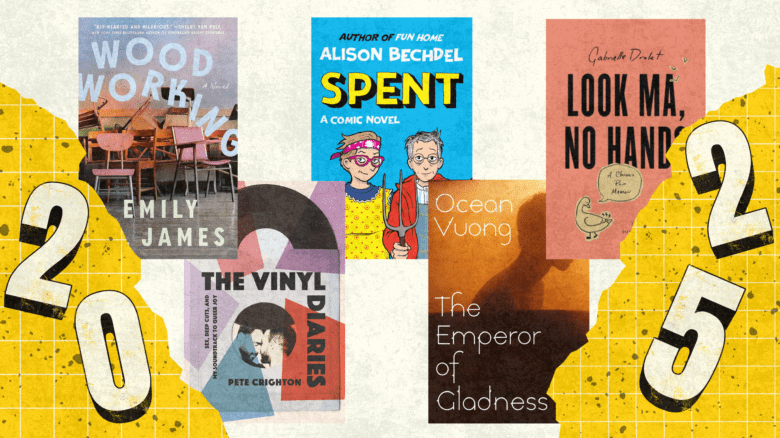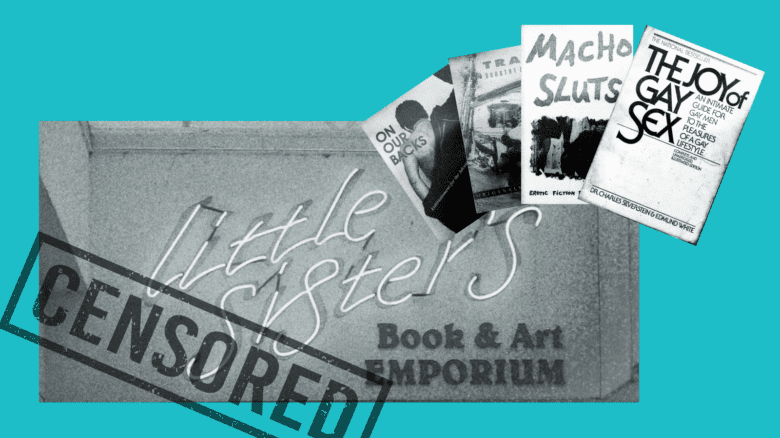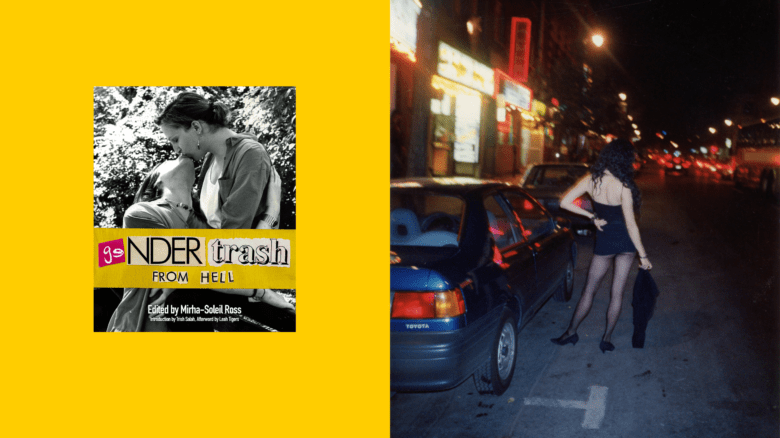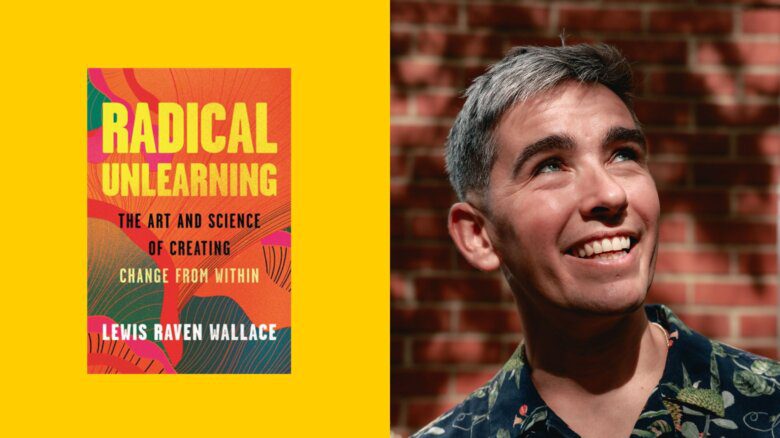Ghanaian writer Nana Darkoa Sekyiamah rose to international attention with her blog Adventures from the Bedrooms of African Women, which provided the foundation for her acclaimed 2021 book The Sex Lives of African Women, an anthology based on interviews with women from all over the continent talking about the good, the bad, the queer and the kinky of their sexual experiences. Sekyiamah has a knack for getting women to open up about their most intimate moments.
Francesca Ekwuyasi is a Canadian writer, artist and filmmaker born in Lagos, Nigeria, living in Halifax, Nova Scotia. Her debut novel Butter Honey Pig Bread, which topped many 2020 “best of” lists, also explores sexuality and sensuality, but through fiction, not fact. In the sweep of its 368 pages, Butter Honey Pig Bread’s cast of characters encompasses various sexual orientations and identities as it tells the story of a mother and her twin daughters, both of whom eventually leave Lagos for Canada and the United Kingdom in the wake of a devastating childhood trauma. Ekwuyasi, who finished her first short story at age 21, spent several years writing the novel.
The two women had never previously met or read each other’s work when Xtra asked them if they’d like to chat with each other about writing, sex, queerness and, specifically, African queerness. To our delight, they said yes, and after reading the other’s book, the two quickly became fans of each other. What follows is an edited version of their Zoom conversation, with Ekwuyasi in Halifax and Sekyiamah in Accra, Ghana.
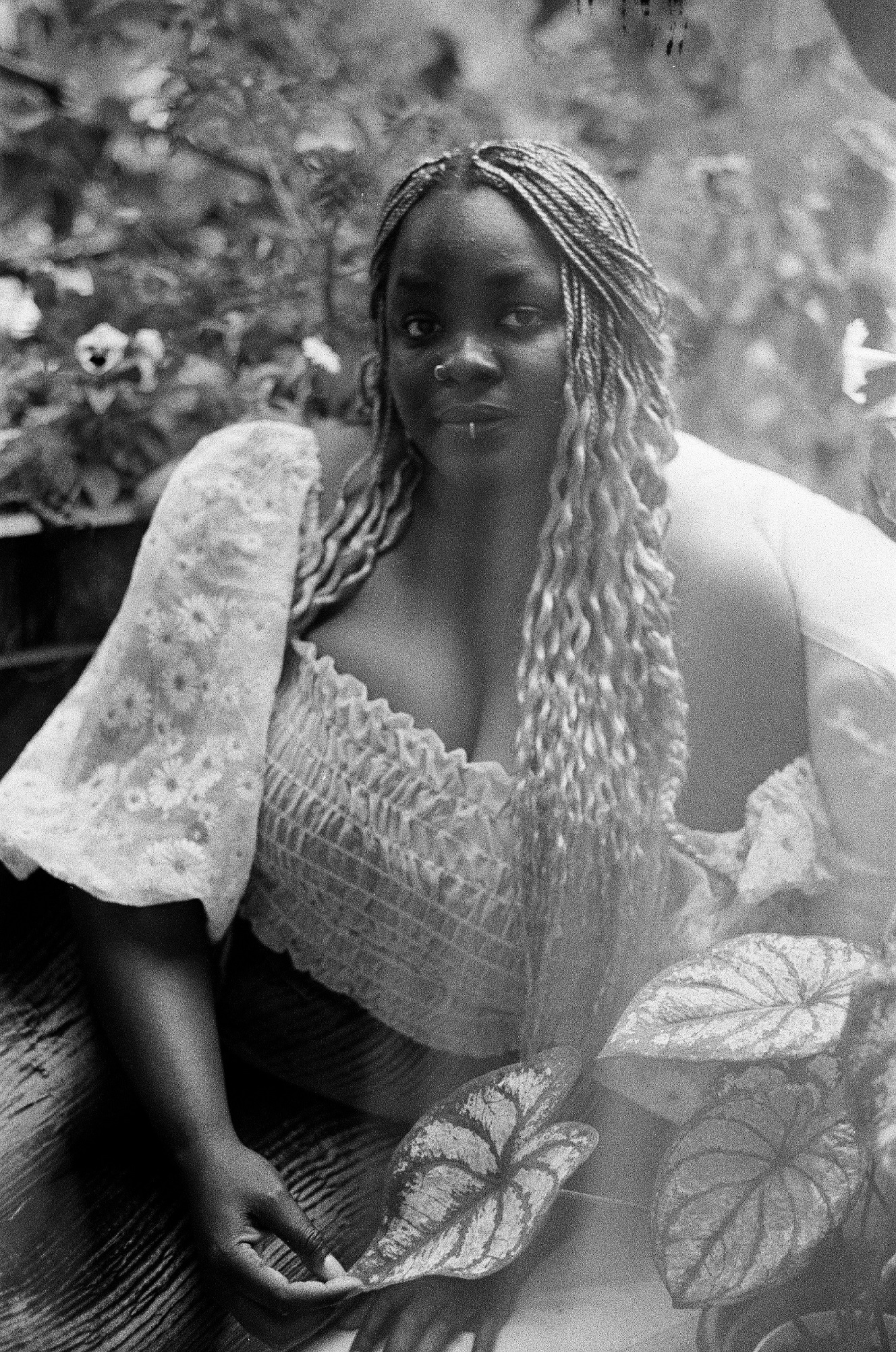
Credit: Lena Szymoniak
Francesca Ekwuyasi: I was so excited reading your book. I felt like when you get a treat and you’re just like, “Am I allowed? Am I allowed to read this and enjoy it?” I just couldn’t really believe that it exists. I can’t believe I wasn’t aware of your blog which you’ve been doing for quite a while, and I’m just sad that to have missed it, these African women and Black women speaking so explicitly about things that I know are true. I’ve never even talked like that with a lot of my girlfriends, with my Nigerian girlfriends. We have to have a certain level of intimacy, right?
Nana Darkoa Sekyiamah: Thank you. And I absolutely love your book; I love, love, love your book. It was funny to me that you seemed apologetic that you didn’t write your first short story until you were 21. That’s young! When did you expect to start?
Ekwuyasi: If you grew up in Ghana, I imagine you understand, but I had a typewriter, like an old-school typewriter, and I started writing stories as a teenager. But I never really finished them because I was reading Lord of the Rings and wanting to write Lord of the Rings. But when I started writing and finishing, it was in my early 20s. I had been dabbling and I tried poetry and it didn’t make sense—I just don’t understand poetry. But that’s when I wrote a complete story that I could share. When did you start writing?
Sekyiamah: If you think of blogging as writing, I started seriously in 2009, but I didn’t think of myself as a writer. But then I did the Farafina Trust creative writing workshop in Lagos.
Ekwuyasi: I’ve heard about so many writers coming out of that program.

Credit: Nana Kofi Acquah
Sekyiamah: For me, it was an incredible space because I found that writing about African women’s experience of sex and sexuality was important and the tutors were very supportive. I was asking myself whether I should be writing about other things, other subject matter that could be a more viable option, and they were like, “No, this is great, keep going.” So that really affirmed me and gave me the confidence to say, “Okay, I’m a writer.” Because it’s a really big deal to call yourself a writer, especially when you don’t have a book out. Then it’s, “I have only one book, am I going to be able to repeat this?”
Ekwuyasi: Do you get intimidated by your own success? Like, “Is this a fluke? I scammed the world! Can I do it again?”
Sekyiamah: On one hand, I know the work I did to write this book. Although I didn’t feel this way when I started, I think now, it’s a little bit easy to interview people and then write based on what they told you, because you have such a huge source of inspiration—people have poured their hearts out to you. That was fun because I would ask people really intimate questions and then try to channel each person in terms of their voice and their form. My next book is going to be very different.
Ekwuyasi: That’s a skill and a craft, because I wouldn’t open up to just anyone about my sex life. Give yourself credit for encouraging and being in a space where people can tell you those stories.
Sekyiamah: I do not think I’m going to be doing any types of interviews for my next book. I’m thinking of something that’s a bit more personal, believe it or not—even more personal than this book.
“I am amazed that people, Nigerian people, were like: ‘Yes, please write about female sexuality.’”
Ekwuyasi: I’m curious about something. The longest I’ve lived at home in Nigeria since I was 17 was the seven months I spent in 2013 when I started writing my novel. And it was a very limited experience of Lagos because my family—we just do our own thing. We sometimes go out. I was actually one of the only grandkids who did NYSC, the youth corps. So I am amazed that people, Nigerian people, were like: “Yes, please write about female sexuality” because I have a perception of West Africans not wanting to talk about this, certainly not in my family.
Sekyiamah: I remember one of the tutors during my residency. He was an observant Muslim and we went to his house for Eid. And I remember thinking at the time, “If you are a religious person, you’re not going to be encouraging a young girl to write about sex and sexuality.” And I was struck that he, in particular, told me that this is good. “You need to keep writing, this is important and it’s completely valid for you to do so.” And I encouraged the class that the book we should do together should be a book about sexuality. Yes, I got all of us to write this short story collection about sex and sexuality, which was a lot of fun.
Ekwuyasi: That makes me so happy. And makes me hyper aware of my own programming around my own culture. Because I grew up in Nigeria, I feel like I know Nigerians. But then I’ve adopted, I guess, an outsider perspective.
“I definitely feel like African writers are one type of community for me, as well as African feminists.”
Sekyiamah: It’s also about finding the right kind of community because, for me, I definitely feel like African writers are one type of community for me, as well as African feminists. I guess I’ve cultivated a community around me where we are able to talk about sex. So for you, writing has been mainly solitary? Can you share a little bit about how you have found the motivation to keep going?
Ekwuyasi: I feel incredibly lucky because it just feels like my writing is a gift in that I’ve always had it. I’ve always wanted to, ever since I was a small child, even before I could really write properly. I would just imagine scenes. And my imagination definitely kept me company lots when I was a kid. Sometimes it terrified me. Now the discipline to turn it into a proper craft—I come from a family of creatives. My brother’s a music producer, so I grew up seeing his passion and his discipline. He would use the trial version of the software, the free version, to make music. He still has this incredible love for music, and I feel like I learned from that. I have an incredible love for storytelling because even at my lowest, most difficult mental health times, the loneliest times, I’m like: I have my imagination. The short story I finished when I was 21 or 22, I spent several years editing it because the subject matter was really personal. It wasn’t about me, but it was about a queer woman; it was about sex and there were conversations about faith in it. I was nervous and I wasn’t sure how I’d be received. But eventually, I submitted it to Brittle Paper, which is an African literary blog, and it was really well received. So I felt very encouraged to keep writing about what I wanted to write, about what really felt close to my heart.
Sekyiamah: What I’d love to hear is what other books you feel your book is in conversation with, and who you are told your book is in conversation with, but you’re like, “nah.” I am asking because a lot of the time the press says, “Oh, if you read Three Women [the 2019 non-fiction book by American author Lisa Taddeo, who wrote about the sex lives of three women after almost a decade of research] and loved it, you should read this book. Or if you read Three Women and you’re wondering about where are all the Black women, you should read this book.” And I’m like, I love Three Women, it was a huge bestseller, so I’m flattered by the comparison that I’m in conversation with it. I hope I make the money she’s made. So I’d like to hear who your book is in conversation with.
“I love that scene at the party in Nigeria where you have a gay man holding court.”
Ekwuyasi: I honestly haven’t had a lot of comparisons because I live in Canada and my book is published by an indie publisher [Vancouver’s Arsenal Pulp Press] and it’s really been going around by word of mouth, by Bookstagram. Thank God for African Bookstagram. In Canada, there have been a few things that brought it to the spotlight, and I’m so grateful for the people who read it, but Canada doesn’t necessarily have the reference. When I was writing it I was thinking very much about three authors—and this is probably nothing like their work—but I was thinking about Sefi Atta, who wrote Everything Good Will Come, because when I read that as a teenager, it changed my life. It really made me realize that I can write about a world I know, that I see in front of me. She was writing about Lagos in a way that I could really see it. So I wanted to do that: write about very concrete real neighbourhoods and places. And then Helen Oyeyemi is one of my favourite authors in the world, primarily because she writes whatever the fuck she wants. All her books are so different and so weird. She’s Nigerian, but she doesn’t always write about Nigeria. Her work is very informed by place. And the third was Zadie Smith, not only because I’m in love with her, not only because she’s incredibly intelligent and beautiful—I grew up reading her work, and I still read her work. My book is nothing like theirs; no one has made that comparison. What about you? What authors were you thinking about?
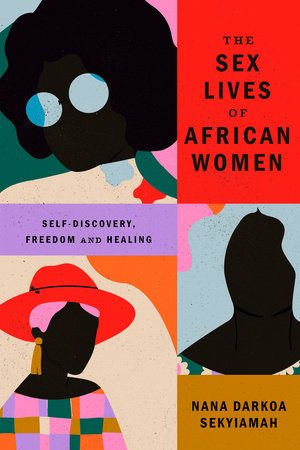
Credit: Courtesy of Astra House
Sekyiamah: I wrote The Sex Lives of African Women because I felt very much like we didn’t really have a lot of books by African women where they themselves were speaking about their experiences of sex and sexuality. But the books that I think my book is in conversation with are maybe known more by the African feminist community, more than the mainstream one. There’s an anthology called She Called Me Woman; I loved that it was queer women from Nigeria sharing their own stories, speaking their own truths, very much uncensored. I also love African Sexualities: A Reader by Sylvia Tamale. I hope my book is making a contribution to the body of knowledge that African feminists have been producing about sex and sexuality, which speaks to the fact that sexuality is a spectrum, that we have been doing this work, documenting our own stories and telling our own stories. So I see my books as more in conversation with those types of books. Of course, bell hooks is a classic—I feel like she drills down complex concepts into simple language.
Ekwuyasi: With my book, I was writing basically what I wanted to read. It was truly an indulgent thing for me, writing about the sex I was interested in. I was definitely nervous. I thought I would have to edit all those parts out, but I didn’t. My publisher was so supportive.
Sekyiamah: I have to say, I loved the character Taiye [one of the twins at the heart of Butter Honey Pig Bread]. I love that she indulged in the pleasures of the flesh. I love that in the long run, she ended up in a relationship with Salomé, who was also poly. I was gutted when the relationship…. Well, I wouldn’t want to give away too many spoilers. What was also interesting to me was the different types of sexuality that were portrayed in the book. So you had Taiye, and I felt her family just accepted her for who she was. In a way, she was free to live out her truth. Then you have Timi, who has this mom who is an evangelist, is experiencing that stress of being a queer man—the person who should love you the most loves you, but then it’s also conditional. And I love that scene at the party in Nigeria where you have a gay man holding court. There’s so much space for him to exist in that reality.
“I was nervous to write a tragic queer character.”
Then there’s the larger backdrop of Nigeria’s Same-Sex Marriage (Prohibition) Act. But then—and I don’t know if it’s just my echo chamber—but the queer Nigerians that I follow seem to be living their best lives at the same time we know that this act exists. People find ways to thrive and people find ways to live and to exist in spite of whatever’s going on.
Ekwuyasi: I was nervous to write a tragic queer character. The media I was consuming in my early 20s was saturated with sad queer characters, the Black queer woman who was rejected, and it was just truly just sad all the time. I really wanted Taiye’s queerness to not be the main thing. But I did have to make a decision, because I knew that one of the twins was going to experience a trauma. And because of the idea that people are queer because they were abused as children, which is not true—I had to make a decision to not do that.
Sekyiamah: Thank you for not doing that.
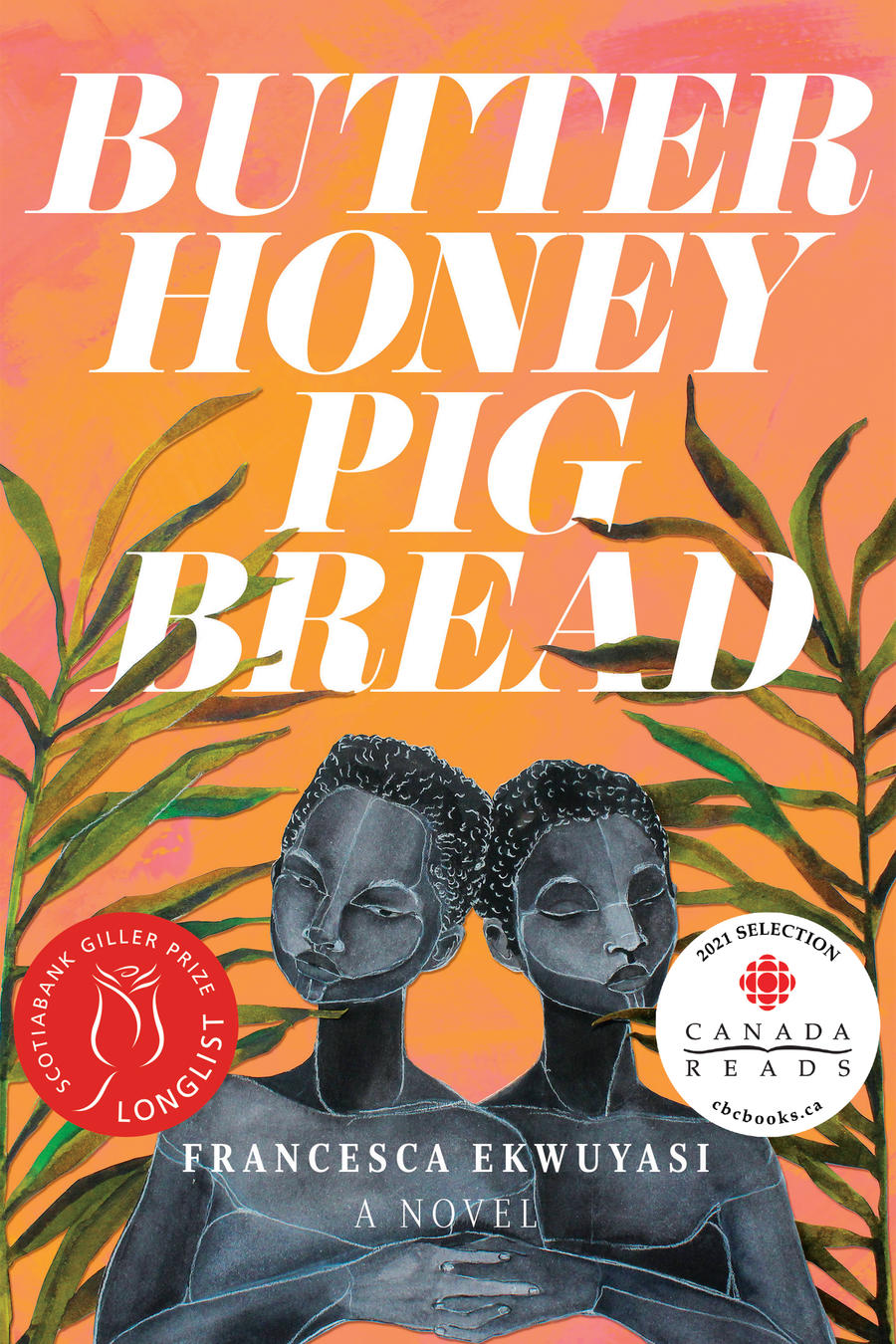
Credit: Courtesy of Arsenal Pulp Press
Ekwuyasi: But then I was like, “Can a queer person be free of queer shame?” Taiye has so much shame that’s not about queerness, and I just really wanted to be in that world, but then I didn’t want to ignore the realities of culture and religion and how that can affect people, so for Timi, that was it. He was free when he was away from his family, and he was truly a free person in his heart. But as much as we try to move away and we try to be free, there’s family, religion, shame, obligations. I didn’t want to ignore that reality, I just didn’t want to centre it.
And like you, I follow these queer Nigerians in Nigeria. And I thought I had to run away! My experience of queerness early on was very white. I was lonely. And I thought I shouldn’t have to choose between my culture, my Blackness, my Africaness and my queerness. Thank God it’s not like that anymore. I have a community of racialized queer people from all over the world. I had wanted to write a world where there were these out queer Nigerians, because I hadn’t seen it, but now I see it on social media and I’m like: “I’m coming home for Christmas? Can we be friends?”
Sekyiamah: If you decide to go home to Nigeria, I’ll introduce you to some people.
Ekwuyasi: When I was reading your book, I felt similar to when I’m following Nigerian queers on social media. These women are living and they’re free. In one of the first stories, there’s a woman who converted to Islam and married into a polygamous family and is quite happy. I know that, in theory, that exists, but reading it firsthand was so amazing. Then there’s the story of the dominatrix. What was it like to receive those stories?
Sekyiamah: Nura, the woman who chose to get married to a man who already had two wives, she’s a woman I consider my contemporary; we’re around the same age. For me I was like, “Wow, I’ve never thought of polygamy as a valid choice.” And here was this woman presenting it as a valid choice. And I could see how she had space to be herself and space to live her life. And I could see how, in a sense, she was a lot freer than a woman in a traditional monogamous sexual relationship. It was an important reminder that various forms of relationship structures are valid. It’s more about people having that agency to make a real choice as opposed to choices being made for them. Also, I felt it personally, because I myself am the product of a polygamous marriage. Yet I had thought that all women in polygamous marriages are mainly submissive, even though I don’t think of my mom as a submissive woman. You buy into the myths and stereotypes yourself, even when you apply them to yourself differently.
“Remember the clitoris is expansive, it goes through all your body.”
There’s the story of Waris, a woman who was cut as a child, which she describes as child sexual abuse. I found her story to be a really helpful way of seeing FGM (female genital mutilation). I had always assumed that if you have experienced FGM, you don’t experience sexual pleasure. I remember a time she was just telling me about a deeply orgasmic experience. In my head, I was thinking, “But how, but how, but how?” I found a way to ask her a lot more diplomatically, and she was like, “Remember the clitoris is expansive, it goes all the way up through all your body.” I got those reminders time and time again. You think of yourself as someone who is open-minded, who doesn’t buy into stereotypes, but it sinks in.
Ekwuyasi: The programming does sink in, even when you think you’re learning, you’re liberated, you’re free. The reason I know this person would have orgasms is because the bookstore I work at is also an education-based sex store and we have a lot of books on sexual health, erotica, kink and anatomy. So I happen to know that the clitoris is not just one part. But I didn’t even consider how a conversation with someone who’s experienced FGM would make it into a book about sex and sexuality. But of course.
Sekyiamah: When I started the book, I really didn’t want to focus on what is usually stereotypically portrayed about African women’s sexuality. I wanted to present a more complex picture. And I think Waris’ story does that. But I wanted to ask you about food—it is clearly such a big theme in your book. There are so many incredible recipes. I want to spend an evening with a glass of wine and your book. Can you speak a little bit about cooking as a form of self-pleasure?
“There’s some people, for them, food is merely sustenance. I’m not interested. I can’t. It makes no sense to me.”
Ekwuyasi: I’ve loved cooking since I was a kid. My grandmother was always cooking. Cooking TV, cookbooks, cooking competitions and all that were part of my childhood. But as a thing for myself, when I left home, whenever I would feel lonely or homesick, cooking food from home is what would bring me comfort. And luckily, you know, that we live in a globalized world so I could find crayfish and igbo meat here. Even when I was living with my aunty in upstate New York, no matter how tense our relationship got, it was, “Food’s ready, come eat,” whether or not she had just yelled at me. As a storytelling tool, I didn’t mean it initially, but when I was more than halfway through the book, I realized what was happening. Then I made it my intention to use food as a way to ground the story in the sensual realm, the way things taste, the temperature of things.
Growing up, my grandmother was quite strict and sometimes I would be afraid to be around her, but in the kitchen I would stick around because I wanted to watch her cook and she needed my help. The process of cooking and sharing food really anchors us as people, in family, in conversation—even with lovers. If I really liked someone, after a certain point, I would like to cook for you. And honestly I don’t think I could date anyone who isn’t interested in food. There’s some people, for them, food is merely sustenance. I’m not interested. I can’t. It makes no sense to me.
Sekyiamah: I love that. What you’re saying reminds me of one of the women in my book called Alexis. She was the oldest woman I interviewed. She’s a queer woman and is in a relationship with another woman. They’re both in their 70s. And part of what I loved about my conversation with her was the role that food plays in their lovemaking and their life together. It’s a love language. Making love is like exchanging food from different cultures. You know, she’s Afro Caribbean and African-American and her partner is originally Nigerian, and them making love is also about them exchanging food from different cultures. She speaks about the kind of fish soup her partner makes and how her partner’s grandmother was from a fishing village. In this day and age, so many people have complicated relationships with food, so it was incredible to tap into this sheer joy of eating.
“I would love to have a real go at a full-length fiction book.”
Ekwuyasi: I have another question: I want to hear more about any fiction that you have written, because I haven’t read your fiction.
Sekyiamah: So the fiction I’ve written has primarily been short stories, only two of which have been published in collections. It’s out of my comfort zone, but I would love to have a real go at a full-length fiction book. How about you? What are you working on now?
Ekwuyasi: In 2019, right before the pandemic, I had an artist’s residency where I interviewed queer people who have a faith practice about their faith background, and I filmed them while they were cooking and talking to me about their faith. That is all of my favourite things. Let’s talk about God, let’s talk about sex, let’s talk about food. It was really just a way to get people to share their stories. That’s why I say I’m a multidisciplinary artist. But writing is my number one, because you don’t need anything except a pen and paper or a computer. There’s something very humble and almost universally accessible about it. So I have synopsis/outlines/chapters of two different things I’m very interested in writing, and I’m having to really find the discipline to sit down and work on them. The way I wrote Butter Honey Pig Bread—I don’t want to spend another seven years writing a book.
Sekyiamah: Whatever you come out with next, I can’t wait, I really can’t wait.
Ekwuyasi: Thank you, thank you.
This story is based on a videoconferencing conversation and has been edited for length and clarity.

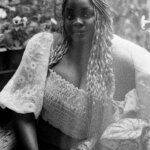
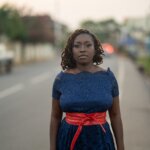
 Why you can trust Xtra
Why you can trust Xtra